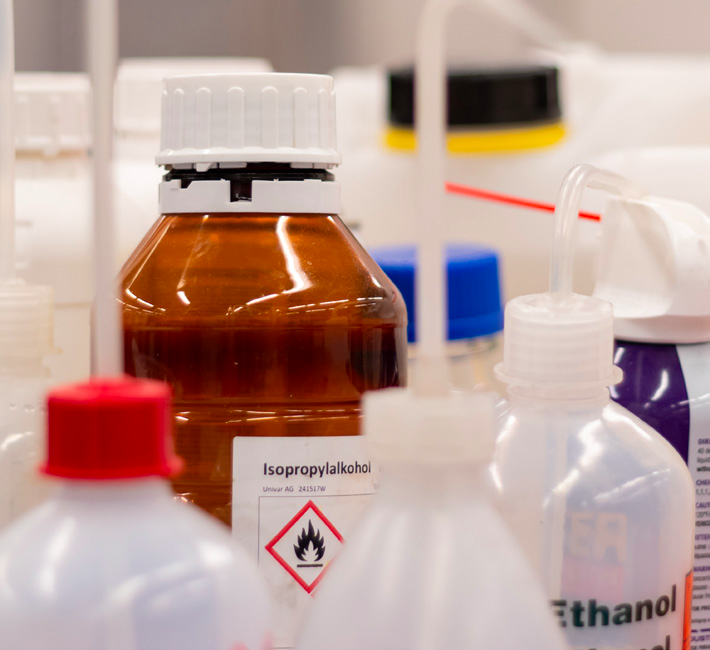Lubricant industry feeling the disruptions of COVID-19
Ken Pelczarski | TLT Career Coach July 2020
Experts agree it’s difficult to predict how things will look by the end of 2020.

No, this is not a dream. This is really happening. The reality of the COVID-19 pandemic is hard to digest because of the massive negative impact it has had on most people and businesses worldwide. Damages from the coronavirus are unprecedented and so widespread that it is almost incomprehensible.
As I finished this article in early May, there were 3.6 million individual cases of the virus worldwide (1.2 million in the U.S.) causing 258,000 deaths worldwide (73,000 in the U.S.) and many more illnesses and hospitalizations. Concerns are that cases of depression, domestic abuse, financial hardship and suicide will increase as time goes on. Stay-at-home orders, social distancing, mask wearing and restrictions on what you can do outside your home have entirely changed the way we interact with other people.
The lubricants industry, like most others, has been suffering. There have been record numbers of layoffs, furloughs and unemployment, as well as temporary and permanent business closings, loss of revenue and profitability, travel restrictions, inability to see customers in person, cancellation of business meetings and social events, decrease in employee morale and disruptions in hiring and interview processes. The bottom line is that COVID-19 has drastically changed the way we conduct business.
The good news is that we will get through this crisis together because of our collective resilience, determination, creativity and generosity. Our nation will likely become stronger with people having more appreciation for each other and for life in general. We will have learned much through this crisis, including new, better, safer and more efficient ways of running our lives and our businesses.
In April, I surveyed over 500 lubricants industry professionals at all levels and in all types of functions and received 46 responses. I want to thank every person who responded to this anonymous survey. My hope is that information from this survey will, in a small way, lead to greater understanding and appreciation for what others are going through and perhaps facilitate helping and learning from each other.
The first question I asked in the survey was, “Do you think the economy will return to normal by the end of 2020?” Below are the four possible answers and the number of individuals answering in each of the four categories.
1. It’s almost a sure thing (3)
2. I’m cautiously optimistic (16)
3. I wouldn’t bet on it (15)
4. There is no full recovery in sight! Be ready for a “new normal” (7)
Below are additional comments from respondents to the question about the economy (next to each comment is the kind of role held by the respondent):
•
Nobody knows how long the restrictions will be in place and then what is sure to be economic conservatism afterward. (additive sales)
•
There is no certainty as the recovery is unknown at this point. (executive)
•
I think full recovery will take longer than the end of the year. We need testing, a vaccine and similar controls on coronavirus. (sales account manager)
•
I fear we could see a big surge followed by a large drop off as people replace spent metalworking fluid/industrial lubricants when we return to work. Once replaced, buying will drop off. (technical manager –distribution)
•
There will be a significant recovery, but the world has changed. It will not just return to “normal.” (business manager)
•
The world has certainly changed over the past five to six weeks, and there is no light switch to turn on and get back to normal, as its definition will be different by the year’s end. (sales executive)
•
I do believe in the American people, but it will take more time than the end of 2020. There almost has to be a new normal…. just look at the oil prices. Wow! (business manager)
I would surmise from the responses to this question that most individuals do not hold either an extreme positive or negative view of the pending economic recovery. Instead, 31 of 41 (76%) of respondents are hoping the economy returns to normal by the end of 2020 but are just not highly confident.
The second question I asked in the survey was open-ended: “Please briefly describe the impact and challenges you and/or your employer have experienced due to COVID-19 in the following areas that apply to you.”
1. Daily business operations
2. Supply chain
3. Company revenue and profitability
4. Employee management
5. Personal career growth
6. Job security and job searching
Below are individual comments that were made in each of the six above categories:
1. Daily business operations
•
Challenging but running normal production schedules. (VP/lubricant company owner)
•
Skeleton crew but business as usual. (lab coordinator – MWF and janitorial)
•
We continue to be open as an “essential business” serving the food, transportation and military industries. Travel budgets greatly reduced until 2021. Capital projects being scrutinized and delayed unless business is critical. Never had so many virtual meetings, both internal and external. Commute to and from work has been a beautiful thing. (VP technology)
•
Practicing social distancing and striving to keep morale high/positive in the safest environment possible. (lab manager)
•
Minimal impact. I set the business IT systems up a few years ago to facilitate this type of work. Biggest impact is some loss of human contact for some employees, but productivity remains high. (president/owner)
•
Mostly the same but no visitors unless mission critical. Salespeople impacted most by inability to go to conferences or visit customers/prospects. (business C-suite)
•
Maintaining lower level of activity. (executive)
•
Still manufacturing as normal, though business has slowed. Operating with high-risk employees working from home or on paid leave if not. (lab manager)
•
Operating at 60%-70% efficiency or less. Major disruption to operations with personnel operating from home locations. (sales manager)
•
Normally work from my office at home, so not much of a change during the pandemic. My workload continues to be about the same. (sales manager)
•
Working remotely has been no change, but with no travel, we have developed new ways to meet online with teams and customers. (field engineer)
•
Furloughing everyone except for four key employees has allowed us, with the current number of orders, to run the plant, lab, shipping and ordering departments. (owner/sales director)

•
Normal business operation but a slowdown in some areas of our customer base. Primary concern, not necessarily challenging, is ensuring our employees remain safe and healthy. We remind them that being careless in their personal time has potential to impact coworkers and business operations. (senior manager)
•
First and foremost is making sure staff are safe and following guidelines we have adopted from CDC recommendations. Change is hard for most people. Making sure staff are maintaining a safe distance from each other, wearing masks and wiping down shared equipment with disinfectant can be challenging, given the types of jobs that require some staff to be almost on top of each other…. maintenance in particular. (VP operations)
•
Slowed the buying/selling process. Some projects postponed but most proceeding forward. (sales director)
•
We are considered an essential business with essential employees. As such, we have worked daily through the crisis. Taking measures to put maximum distance between employees, heightened sanitization procedures on frequently touched surfaces and gave employees the opportunity to work from home part time as much as possible. (senior technical manager)
•
Working with a limited crew on site, but work (orders and customer projects) is being completed. Timelines not negatively affected at this point. (additive sales)
•
Working from home office and social distancing a new normal for foreseeable future. Stressed but working together to manage through the situation and communicate frequently to employees. (executive)
•
Never stopped production during the pandemic as our business is considered essential. Limited lab personnel on site and only quality control tests were run on products that were being shipped to customers. Most impactful challenge was all new projects or projects that were in the works came to a stop, thus, delaying finished outcome of new products for the company. (HR administrator)
•
Working from home, video meetings, no lab work, no travel, shifting customer demands; all very different. (technical manager – distribution)
•
Employee health is tantamount. Requirements to providing a healthy workplace are not onerous, but priority has risen. Second, cash flow is not insignificant, especially for smaller businesses. It can be managed, but you must confront the beast before the crunch hits. (business manager)
•
Many operational and management process changes for my employer. Most companies already have the social and technology foundation required for remote operation. (sales account manager)
•
Saw massive transition to working from home. Manufacturing was declared an essential industry, so plants remained open. Salespeople grounded but are still busy. Company had a line of sanitizing chemicals and developed a hand sanitizer. We actually increased our number of customers. (analytical lab manager)
•
Labor situation is in chaos with people simply not reporting for work. (QA lab manager)
•
Much of what I do is developmental work with customer R&D groups. A lot of this work is on hold as lab personnel are only coming in part time and working from home on other days. Their focus is on short-term work. (consultant)
•
We are considered an “essential” business and are still going strong. Some people have slowed, and their orders are a little further out in time but still coming. (sales manager)
•
Fairly smooth. Our plants keep producing and shipping. Had to move customer visits to the web or conference calls. (MWF sales)
•
I am in sales, and the travel issue is the biggest concern. I am in no hurry to hop on a plane, and that concern is shared by many colleagues. Driving is not a big problem, but flying is. Parts of our business are slow, if not on hold, but I am surprisingly busy in recent weeks. I, and most of my inner circle, normally work from home, so not a total disruption. (sales executive)
•
Have increased safety precautions. It has slowed things down from our normal operations but is something we are getting used to. (owner – lubricant blender)
•
Working from home and cannot meet customers, but new technologies like Microsoft Teams are working as a good alternative. Automotive lubricant business has decreased, while industrial lubricant, including MWF, sales is still acceptable. Difficult to do prospecting. Business decisions are postponed. (team manager – MWF)
•
As a large integrated oil and gas company, in our 100-year history, we have experienced a broad array of market instabilities, including similar contagions, and have developed core values that drive our response to such instances. Safety is the leading core value. The company is in regular communications with supply and distribution partners and routinely offers assistance to ensure their continued operational well-being. Regarding our own facilities and staff, we have implemented guidelines set forth by the CDC at our U.S. facilities. In that regard, our plant operations utilize face masks, gloves and social distancing. Each affiliate of the company has instituted a task force to handle local issues that might arise. (technical director)
•
Significant slowdown in customer orders has created challenges. With a strong desire to avoid reducing headcount, the main challenge has been to keep everyone busy. We have been able to manage workloads and keep everyone engaged by introducing projects identified in the past but never prioritized until now. (technology director)
•
Fewer workers on site. Production crews using staggered schedules when possible. Office staff working remotely. Many web-based meetings with heavy use of shared calendars to manage and set meeting times. Home office was used 80%, now 100%. No international or domestic travel, so business relationships being maintained via Internet usage. New relationships are not being developed. (business development manager)
•
Slower. (consultant)
•
Laid people off and have people working remotely. We have reduced inventory and finished goods. Made dramatic shift to R&D projects and process improvements. (president and CEO)
Comment summary: Many companies and individuals responded in each of the following categories (listed in order of response frequency):
a.
Production has proceeded normally as an “essential business.”
b.
Travel restrictions have resulted in canceled meetings and inability to visit customers.
c.
CDC guidelines have dictated how to manage employees and operations.
d.
There are challenges in running production normally because of safety issues and scheduling employees during a business downturn.
e.
Companies and individuals never had so many virtual meetings and conference calls.
f.
Capital projects are on hold to deal with short-term issues.
 2. Supply chain
2. Supply chain
•
No impact thus far. (VP/lubricant company owner)
•
Harder getting raw materials and samples for R&D work. Have our own trucks for delivery. Overseas is the cost factor. Harder to get shipping suppliers. (lab coordinator – MWF and janitorial)
•
Supply chain to/from India has been impacted enormously. China raw material producers are recovering and beginning to fill supply chain again. Many raw material prices have dipped 10%....a very positive thing. (VP technology)
•
No interruptions for raw materials but issues receiving PPE due to shortage of gloves. (lab manager)
•
Heavy impact, especially regarding surfactants we use in manufacturing. Everyone thinks they are now a critical blender of soaps and cleaners, and we did not fully see the resulting impact. We were able to buy some, but not all, materials in advance. We are being told limited quantities for the next several months. (president/owner)
•
Sporadic “fire drills” with suppliers. International supply lead times a little less predictable. More surprisingly, smaller domestic suppliers have been impacted where operations saw a lot of infections. (business C-suite)
•
Difficulties exist but are manageable. (executive)
•
Our supply chain has been relatively unaffected except for difficulty in acquiring isopropyl alcohol and ethanol. (lab manager)
•
Occasional problems due to trucking, terminal and rail disruptions because of personnel acquiring COVID-19. (sales manager)
•
Supply chain has not been hindered much as most are deemed necessary to production. (field engineer)
•
Not experiencing any issues with getting materials delivered. Hardest part has been getting a person on the phone. (owner/sales director)
•
No interruptions so far, but if crude oil continues to decline in pricing, it could impact our business. (senior manager)
•
Not many problems obtaining materials except for gloves and respirators, which we use regularly anyway. (VP operations)


•
Has caused the company to examine inventories and, in some cases, buy available products to ensure supply through year end. (sales director)
•
Only issue has been the supply from India. Backlog of finished goods and raw materials already ordered and in route will carry us and our customers for quite a while. How long will the border remain closed is the million-dollar question. (additive sales)
•
Mostly stable with variations in product mix. (technical manager – distribution)
•
Hope for the future that supply reliability will factor much more highly in supply chain. The notion you need to match the lowest price in the market despite inferior quality and delivery capability has driven many poor decisions in the last few decades. GE-style bullying only drove the GE stock price down and has put a lot of businesses into the position of unreliable quality and supply. (business manager)
•
We were put on raw material allocation for a few chemicals involved in certain sanitizers. Trying to find replacement chemicals or other sources. Needed to develop new supply channels for hand sanitizers….ethanol. (analytical lab manager)
•
No supply chain intervention thus far, but sense it will be coming, especially from overseas with ports locking down. We planned well and have raw materials for several months. (sales manager)
•
No major disruptions. Some outbound deliveries were not able to deliver and were returned. (MWF sales)
•
No issues so far. I believe this is due to slow demand, so our supply chain is not stretched like other industries. (owner – lubricant blender)
•
The Lubrizol fire disrupted the supply chain enormously, and it is still not normal. We noted there are disruptions in the supply chain as most chemicals are manufactured in China. (team manager – MWF)
•
Luckily there has been no disruption to the company supply chain. Orders continuing to be fulfilled during this uncertain time. (technical director)
•
No issues with raw material supply or transportation logistics. Raw material vendors have done a great job of keeping us informed on availability and potential supply disruptions. (technology director)
•
Starting to see delays in raw materials. (business development manager)
•
Slower, as with a specific project I am working on, one of the international industry societies has told me COVID-19 is resulting in taking more time to complete their required action. (consultant)
•
No issues. (president and CEO)
Comment summary: Approximately two-thirds of companies reported no significant impact on their supply chain, while one-third reported disruptions. These numbers are almost identical to those published in the June TLT
Industry Insights article. Many employers indicated difficulty in obtaining PPE items and raw materials for sanitizer production.
3. Company revenue and profitability
•
Less than Q1 last year due to canceled conference in Asia where I was scheduled to present a one-day seminar. (consultant)
•
Up from same time last year, although it seems industry is down as a whole. (VP/lubricant company owner)
•
Busier and revenue is up as we supply the state and medical industries. (lab coordinator – MWF and janitorial)
•
Orders are down 50%. Expenses are being scrutinized. (VP technology)
•
Combination of OPEC+ negotiations and COVID-19 have affected profitability causing an O&G downturn. (lab manager)
•
Big impact. Sales adequate to get by through year end, but beyond that we will incur substantial financial burdens making it more difficult in 2021. (president/owner)
•
Revenue significantly hit in this downtime. At least 35% off but hope is that we will see a surge of orders soon. Expect to end the year 10%-20% off budget. Profitability not largely impacted, but managing cash flow is becoming a challenge. Receivables are growing. (business C-suite)
•
Some customers are quite busy. No real negative impacts unless things start to slow….they have not yet. (VP business development)
•
Market softening is a significant issue. (sales director)
•
Down with slow recovery forecast. (executive)
•
The company’s revenue has been bolstered by alcohol-based cleaners we sell but is likely to decline soon as that market dries up. (lab manager)
•
Severely impacted during Q2 as many manufacturing operations are closed or cut back. (sales manager)
•
Volume of business has changed from some customers, especially those involved with the airline industry since very few people are flying. This has obviously affected our company revenue and profitability. (sales manager)
•
Revenue will take a hard hit as some customers and automotive travel and servicing are shut down. (field engineer)
•
During March and April, sales dropped by almost 93%. Most of our sales are in automotive and consumer appliance sectors. (owner/sales director)
•
Saw a marked increase in orders during weeks leading up to the imposed quarantine, possibly because some customers were attempting to overstock in case of supply shortages later. While this makes for a good March in terms of sales and revenue, I worry that later this year will be flat. (VP operations)
•
Decreased revenue and profitability. (sales director)
•
Q1 and Q2 were business as usual but a downturn is expected for Q3. (additive sales)
•
Reductions in volumes and sales. (executive)
•
Since our sales team cannot travel and conduct face-to-face meetings with current or prospective customers, we expect a drop in revenue, thus effecting bottom-line profits by year end. (HR administrator)
•
I do not feel my employer has been greatly harmed yet. However, I think most companies will incur revenue losses in Q3 and Q4 of 2020. (sales account manager)
•
Our typical business leaders (metalworking fluids, lubricants, industrial cleaners) have slowed as manufacturing facilities have slowed or closed. However, because we make food-grade sanitizing chemicals, and we quickly adapted to make hand sanitizers, our non-traditional markets have helped bail us out. (analytical lab manager)
•
We are doing OK because we are supplying specialty products. However, others are not OK because of lack of demand due to the quarantine. (QA lab manager)
•
I am doing commissioned sales work and consulting. While my Q1 sales were OK, I anticipate a sharp slowdown in Q2. (consultant)
•
Remains the same at this point. (sales manager)
•
Revenue dropped off when auto manufacturing shut down. Profitability also is affected, as many Tier 1 and 2 customers slowed or shut down production. (MWF sales)
•
Company is on solid financial footing, so no concerns about its future. (sales executive)
•
Down 50%-75% in all areas. (owner – lubricant blender)
•
It is difficult to say right now. Industrial lubricants are still OK. Automotive lubricants are dropping. (team manager – MWF)
•
I am currently employed by a private label grease manufacturer, and as of late April, we have not been negatively impacted economically. (business manager)
•
As with most companies, revenues have been impacted, but as one of the global leading energy companies, we are managing well during this crisis. (technical director)
•
This is the biggest concern. Significant portion of our customer base has experienced shutdown or near shutdown conditions. Because of this, we do not expect to turn a profit this month or next month. All planned capital expenditures for new equipment have been put on hold indefinitely. (technology director)
•
Strong first quarter. Second quarter seeing fewer orders. Expectations that third quarter will see some improvement, with fourth quarter continuing improvement but not to the level of pre-COVID-19. (business development manager)
•
Down. (consultant)
•
Percentage profit is increasing due to oil prices, but since revenues are sharply down, net profit is down. (president and CEO)
Comment summary: Nearly 70% of companies reported revenue and/or profitability being down, while more than 20% reported status quo numbers, and 10% reported increased revenue. A common theme among respondents was the concern for a downturn in Q3 numbers with mixed opinions for Q4. These results are close to numbers published in the June TLT
Industry Insights article.
4. Employee management
•
Difficult as many are working from home now but making things happen remotely. (VP/lubricant company owner)
•
Same as usual but employees with health issues were told to stay home. (lab coordinator – MWF and janitorial)
•
OT not allowed. Workers being cross trained and repurposed. Many working from home. Plant folks doing a lot of cleanup, painting and maintenance that has previously been a lower priority. (VP technology)
•
Honest communication is key. Following WHO and CDC mandates helps keep employees informed. Enforcing social distancing and housekeeping are important for our employees’ safety. (lab manager)
•
Working via cell phones, Microsoft Teams, Zoom, etc. We have been running several portions of our business like this already, so there is little impact. Workers being divided into separate crews in separate production facilities. All other office and sales personnel working from home. (president/owner)
•
For a conservative company like us, we jumped in the pool of “work from home” both feet first. Huge learning experience. We should come out of this a stronger company for it. (business C-suite)
•
Our team is 100% remote, and it is working well! (VP business development)
•
Managing/leading a sales group is challenging when sales reps are concerned with the future and have little control over what is happening at their accounts. (sales director)
•
OK with some issues on safety PPE. (executive)
•
Impacted as retained employees operate from home locations. (sales manager)
•
As working remotely is normal, nothing has changed. Office staff is learning the new way. (field engineer)
•
Furloughed everyone except for four key employees. Just received PPP loan money, so we are hiring everyone back but keeping them at home until demand increases or somehow this virus magically goes away. (owner/sales director)

•
With some staff working from home, it is challenging to coordinate all that is required to operate a manufacturing facility. With orders being somewhat atypical, some staff have been assigned new tasks just to get products out. Cross training is definitely a plus during times like this. (VP operations)
•
More people working from home makes communication interesting and stresses technology. (sales director)
•
New rules have been put in place for meetings, plant access, travel, etc., anything involving personal contact. Some leeway and expectations regarding personal health have come into play, allowing individuals to stay home without repercussions. (additive sales)
•
Frequent and accurate communication is key to employee morale. It becomes quite evident who you can rely on to step up during hard times. Helping guide employees to proper resources will help the transition. (executive)
•
There was challenge in determining which employees were considered essential, providing the tools and resources for employees that would begin working remotely and ensuring that managers knew how to supervise remote workers as this was new to both the employee and manager. Employees required to work during the pandemic might expect additional compensation for their diligence, perseverance and fortitude to keep the business running while others could work from home. Therefore, we are exploring options to reward these employees for their service. (HR administrator)
•
All by video, so less personal but effective. (technical manager –distribution)
•
Employees all have unique circumstances, which impact their health risk as well as their fears. You must be cognizant of this and tailor a way to meet job requirements and objectives while addressing those needs. It takes work but stressed, sick or stymied employees do not make anyone happy. (business manager)
•
I manage labs located in three states. As such, managing my staff from afar is something to which I am accustomed. Since they generate the data, they need to come into the labs. The analysis of data can be performed from home. (analytical lab manager)
•
Because of the labor situation, essential managers need to do multiple tasks with longer hours to fill in the gaps. (QA lab manager)
•
For the most part, all is going well. Company was able to set up many to work from home, and no major technology problems. (MWF sales)
•
Company has taken good care of all its employees and is concerned about our health and safety, so very reassuring….not just the employee’s well-being, but their family and community as well. (sales executive)
•
Remote working for employees and management requires different sorts of motivation and encouragement. Trying to adapt as we continue nontraditional working arrangements. (owner – lubricant blender)
•
Remote working provides challenges but displays creativity of organizations to adapt. This situation makes it clear that we can do more than we think. (team manager – MWF)
•
Non-essential employees working from home and having weekly staff meetings to keep up with safety and well-being of employees. Corporate sends daily updates regarding COVID-19 to us, keeping the company “family” connected around the world and offering support at work and at home. (technical director)
•
Employee morale surprisingly good. Upper management doing a good job communicating current challenges the company is experiencing. While news is not always positive, keeping everyone informed has been a big help. (technology director)
•
Onsite visitation and entry policies established, including social distancing, health checks and essential visits only. (business development manager)
•
Trying to keep everyone positive. (president and CEO)
Comment summary: Many companies and individuals responded in each of the following categories (listed in order of response frequency):
a.
Working remotely has presented new challenges for both employers and individuals.
b.
Business as usual for companies used to managing remote employees or employees used to working remotely.
c.
Honest and frequent communication from employers is required to maintain positive morale among employees and keep them informed of COVID-19 operating guidelines.
d.
Cross training and repurposing employees has been necessary to keep them busy and focused on priority projects.
 5. Personal career growth
5. Personal career growth
•
Status quo. As we sold our business, things are taking a different shape. Hard to define other than outlook is good. (VP/lubricant company owner)
•
Excellent thus far. (lab coordinator –MWF and janitorial)
•
Travel on hold, but attending webinars is encouraged as well as training done by internal professionals to optimize time during a slowdown. (lab manager)
•
I have become much more technologically savvy and independent. The IT person is not in the next room anymore, and you must react and think quickly if you want to continue servicing clients. That means being self-sufficient. (president/owner)
•
Career growth? I’m just glad to have a job. (business C-suite)
•
On hold. (executive)
•
Personal career growth put on hold pending COVID-19 resolution in next six to 12 months. (sales manager)
•
Unaffected by COVID-19. (sales manager)
•
With no travel, it has given extra time to online education. (field engineer)
•
I have been an owner of this company since 1997, and through the years I have been responsible for operations, supply chain management, product development and management, regulatory and sales and marketing. (owner/sales director)
•
Too early to tell. (sales director)
•
Nice to see STLE and others offering many online webinars. (additive sales)
•
Good opportunity to complete additional training and enhance career development for people with idle time. (executive)
•
No change. (technical manager –distribution)
•
I am not as focused on career growth as I am on company stability, which will translate to career stability. (business manager)
•
On hold. (analytical lab manager)
•
Greater opportunity for “essential” employees to get experience in other areas that were normally filled. (QA lab manager)
•
Still looking for it! (sales manager)
•
In a sales position and not looking to go back into a leadership role. (MWF sales)

•
Growth has been sacrificed for survival in some respects. (owner –lubricant blender)
•
Competences like creativity and generating new ideas are more visible. (team manager – MWF)
•
Maintaining contact with customers via phone or online meeting tools, and offering training webinars on virtually every pertinent tribology subject. (technical director)
•
Making it a point to take full advantage of all available training opportunities during this slowdown. With the elimination of supplier visits and in-person training, online webinars have been a welcome addition now more than ever. (technology director)
•
On hold. (consultant)
Comment summary: The highest number of survey respondents (both employers and individuals) reported advancing skill sets and new learning through STLE and other online webinars. Many individuals also reported either that 1.) their personal career growth was on hold or 2.) there was no change in their growth status.
6. Job security and job searching
•
Hiring is off for now as we transition to new ownership, and security is solid. (VP/lubricant company owner)
•
Very secure. I am the main technical focus. (lab coordinator – MWF and janitorial)
•
Hiring freeze is on. If business does not improve within the next 30 days, layoffs and/or pay reductions will be considered. Nobody is looking to leave currently because there are not many jobs available. Government incentives for small- to medium-sized businesses to maintain staff is helping to keep everyone employed at the moment. (VP technology)
•
Company policy promotes job security if you contribute every day. Because of high unemployment numbers, job searching is a scary thought. (lab manager)
•
I own the company, so one way or another, I will have a job coming out of this. Main objective is protecting employees’ health and well-being and being able to respond to business that will be there when we come out of this mess. Those who stay healthy will be able to make money on the backside, and the jobs will be there. (president/owner)
•
I was downsized just before 2020. Trying to find a job/get an interview has been impossible since the end of March. My last interview closed with HR telling me they were uncertain if/when they were going to fill the position. (R&D manager)
•
On hold. (executive)
•
Put on hold. (sales manager)
•
Unaffected by COVID-19. (sales manager)
•
Not a good time to be job searching. Security is being able to provide a value even during the crisis. (field engineer)
•
We have had some people retire during this crisis, so we are promoting from within and hiring a couple of new technicians. (owner/sales director)
•
When this began, we were advertising for production workers to fill several positions held by soon-to-be retirees. Bringing candidates in for interviews was suspended through March and has been strictly done through the phone since then. Unfortunately, this has delayed some staffing plans. (VP operations)
•
Job security is stressful. Filling an open position is interesting without meeting candidates face to face. (sales director)
•
Unknown security at this point. Job searching has slowed but not stopped. Primary method has been phone interviews. (additive sales)
•
I think everyone is less secure in job and life currently. (technical manager– distribution)
•
Everyone needs to realize that companies bleeding red will have to address their financial plight. You must be proactive in managing your career. The health of your company today might not be the same in the future. What is an attractive market now might not be in the future. There will be jobs, though, and you need to always look forward and select wisely. (business manager)
•
Certain parts of the company, including the lab, were asked to work 32 hours per week for April. This does not affect our vacation time, and the company stated they would attempt to pay us back for lost wages. The CEO is not taking a paycheck this quarter, and senior leadership took a 20% pay cut. Overall, I think they are being more than fair and trying to do what is best for the company. (analytical lab manager)
•
Job security is high if you are “essential.” It is bad if you are “nonessential,” for instance, in sales where your main function is to gain influence with decision makers....not to say that sales is non-essential. However, a role can be greatly diminished because of the quarantine and social distancing rule. (QA lab manager)
•
I am doing new business development work for a company offering a high-tech additive. They have put me “on furlough” for three to six months so they can husband resources to avoid laying off company employees. (consultant)
•
Always looking for something more challenging and upward in salary. (sales manager)
•
Our company confirmed early that our jobs were secure, and we would be able to ride out the situation. I am not looking for a new position. (MWF sales)
•
Hiring will be put on hold for a while. Need to find stable footing before looking to expand. (owner – lubricant blender)
•
Organizations want to keep employees as much as possible as they will need them later. They communicate that the jobs are now secure, but for how long? Who will hire at this moment? (team manager – MWF)
•
Working for a smaller company, I feel confident from a job security standpoint, but that could change at any time. (technology director)
•
Company in good financial condition, so expect no change to employee numbers. No reductions expected, but hiring freeze is in place. (business development manager)
•
Not the best time to do job searching, but this will change. (consultant)
Comment summary: Many companies and individuals responded in each of the following categories (listed in order of response frequency):
a.
Company hiring freeze/holding on new hires until later this year.
b.
Employers conveying to employees that their jobs are secure, and individuals feeling relatively secure as a result.
c.
Not the ideal time to be searching for a job. Business is down, employers have other priorities, and there are safety issues with conducting interviews in person.
d.
A small number of companies mentioned furloughs and possible layoffs.
Several additional respondents noted negative impact (without any comments) in areas of daily business operations, supply chain and company revenue and profitability.
Here is an additional comment (which fits well with a couple of paragraphs below) from a respondent to the general question about the COVID-19 impact:
•
All six of the challenges you list have impacted all of us in some form or another. However, in the next few months, impacts could be greater. We will see. (business manager)
Nobody can predict where we will be as a nation later this year. It is hard to paint a rosy picture for even six months or a year from now when countless people are experiencing feelings of fear, concern, sadness, anger, frustration, paranoia, isolation and uncertainty. We each need to draw from our inner strength and faith to get through these tough times. Eventually, COVID-19 will be behind us because of successful drug therapies, antibody testing, vaccines, contact tracing and perhaps mass immunity or the virus simply burning out like SARS.
I detect optimism and hope in most of the survey responses and think that by late summer, we will be much further along toward the return to a strong economy and a greater sense of normalcy. Unfortunately, because of the rapidly changing COVID-19 situation and much still needing to be learned about the novel coronavirus, the uncertainty makes it all but impossible to plan for the future.
Lastly, I cannot write this article without paying tribute to the front-line workers, first responders and military personnel who risk their own health and put their lives on the line to serve and protect us. Thank you to doctors, nurses, paramedics, other healthcare workers, police officers, firefighters, restaurant and grocery store workers, hospitality employees, truck drivers and all others who put themselves in harm’s way. Thank you also to everyone who is making a conscious effort to protect others through social distancing, hand washing and wearing masks.
Please stay safe and healthy, and help others in the best way you can. I believe we will return to a new and better “normal” someday soon.
Ken Pelczarski is owner and founder of Pelichem Associates, a Chicago-based search firm established in 1985 and specializing in the lubricants industry. You can reach Ken at (630) 960-1940 or at pelichem@aol.com.